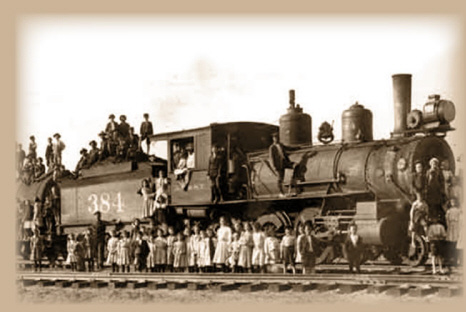Between 1854 and 1929, so-called orphan trains ran regularly from the cities of the East Coast to the farmlands of the Midwest, carrying thousands of abandoned children whose fates would be determined by luck or chance. Would they be adopted by a kind and loving family, or would they face a childhood and adolescence of hard labor and servitude?
As a young Irish immigrant, Vivian Daly was one such child, sent by rail from New York City to an uncertain future a world away. Returning east later in life, Vivian leads a quiet, peaceful existence on the coast of Maine, the memories of her upbringing rendered a hazy blur. But in her attic, hidden in trunks, are vestiges of a turbulent past.
Seventeen-year-old Molly Ayer knows that a community-service position helping an elderly widow clean out her attic is the only thing keeping her out of juvenile hall. But as Molly helps Vivian sort through her keepsakes and possessions, she discovers that she and Vivian aren’t as different as they appear. A Penobscot Indian who has spent her youth in and out of foster homes, Molly is also an outsider being raised by strangers, and she, too, has unanswered questions about the past.
Moving between contemporary Maine and Depression-era Minnesota, Orphan Train is a powerful tale of upheaval and resilience, second chances, and unexpected friendship.
Wow, just wow.
I picked this book up for an online book club I am a member of and read it in 2 days.
Until this book I had no inkling about this part of our American History and I find it horrifying and fascinating all at the same time.
Baker Kline weaves the historical journey of Vivian (named Niamh by her birth parents and Dorothy by one of the families that takes her in) and Molly's present day foster care story beautifully. Her characters are well rounded and easy to identify with which I found amazing since I have no experience with the foster care system.
The one element that did bother me is that Baker Kline makes all of the women who foster/adopt (with the exception of one who you don't get a good picture of) horrible. I'm not talking just mean to Vivian and Molly but just down right rotten people. I found this element of the book a bit disturbing, being confronted with these women every page just left me with a nasty taste in my mouth.
There was one other thing that happened in this book that I found absolutely unbelievable and stunning. I don't want to give anything away but I am still thinking about Vivian's decision today and would love to ask the author 'why'.
It is rare for me to pick up a book and learn something new about our history (since I'm a bit of a history nut). But this one did teach me something and was written beautifully.
The Orphan Train Movement was a welfare program that transported children from crowded cities of the United States, such as New York City and Boston, to willing foster homes across the country. The orphan trains ran between 1853 and 1929, relocating an estimated 250,000 orphaned, abandoned, or homeless children. At the time the orphan train movement began, reformers estimated that 30,000 vagrant children were living on the streets of New York City.
Two charity institutions, The Children's Aid Society (established by Charles Loring Brace) and later, the Catholic New York Foundling Hospital, determined to help these children. The two institutions developed a program that placed homeless city children into homes throughout the country. The children were transported to their new homes on trains which were eventually labeled “orphan trains” or "baby trains." This period of mass relocation of children ended by the 1920s; it was the beginning of organized foster care in America. (from Wikipedia)
I'm linking up








4 comments:
Sounds like a fascinating read- I think I saw a movie about this many years ago and had no idea how much was true/fiction
This looks like a very interesting book; I'll have to pick it up. I'm not familiar with the orphan train, but something similar. My Mom was born in Maine in 1936 and in her early childhood, parents could not afford to keep their children because of the depression and lack of jobs. My Mom and 2 of her siblings were sent off to an orphanage and lived there for a couple of years. My Mom still has a hard time talking about this time in her life.
We are so blessed with the lives we lead today!
My girls read several of Karen Cushman's books, and I remember Rodzina covered this topic. It was the first I'd heard about it. The book was almost Dickensian. I want to read this, Caroline. Your recommendations are always fantastic!
xo,
RJ
Oh, and thanks for linking-up to Literary Friday!
Post a Comment